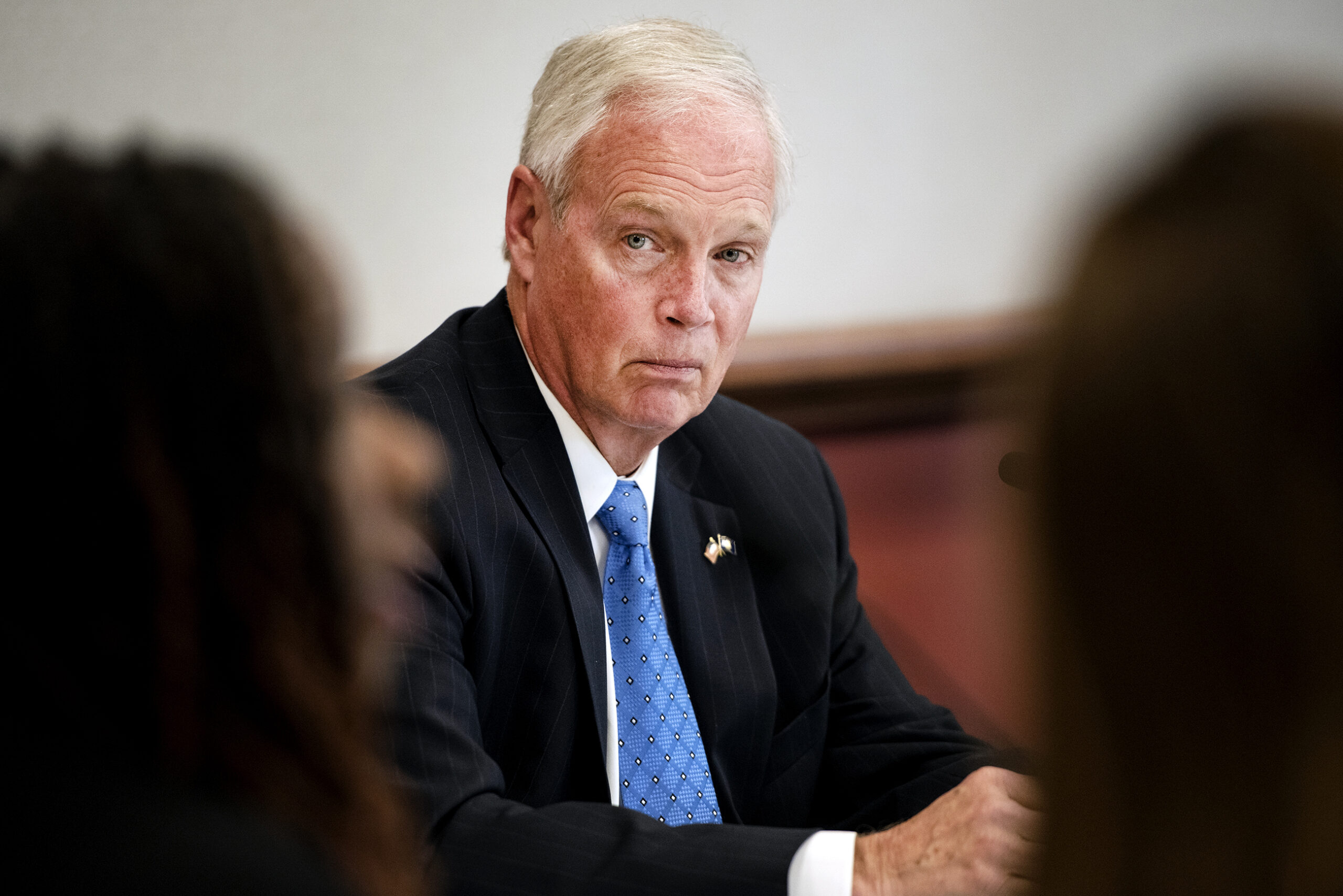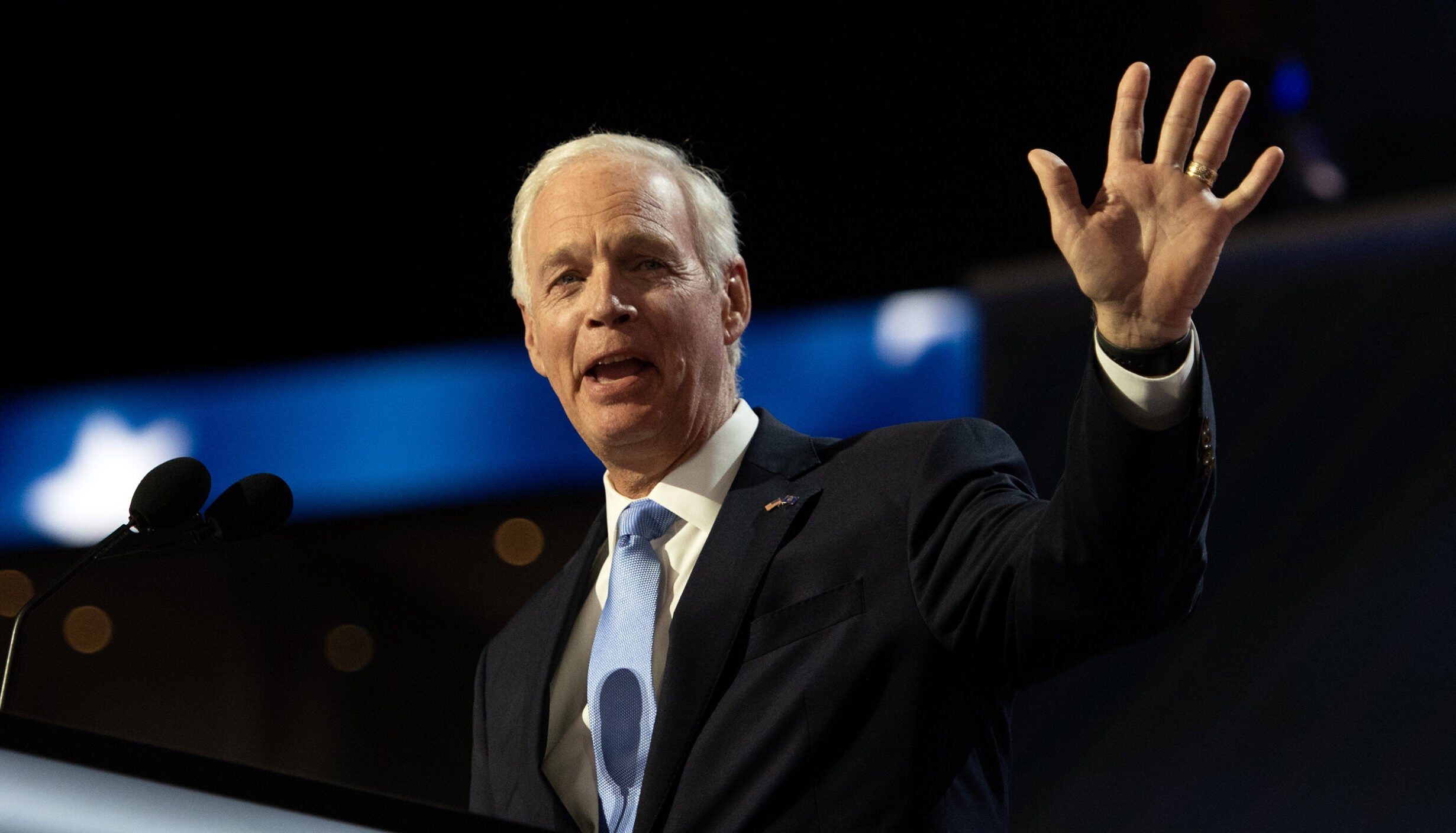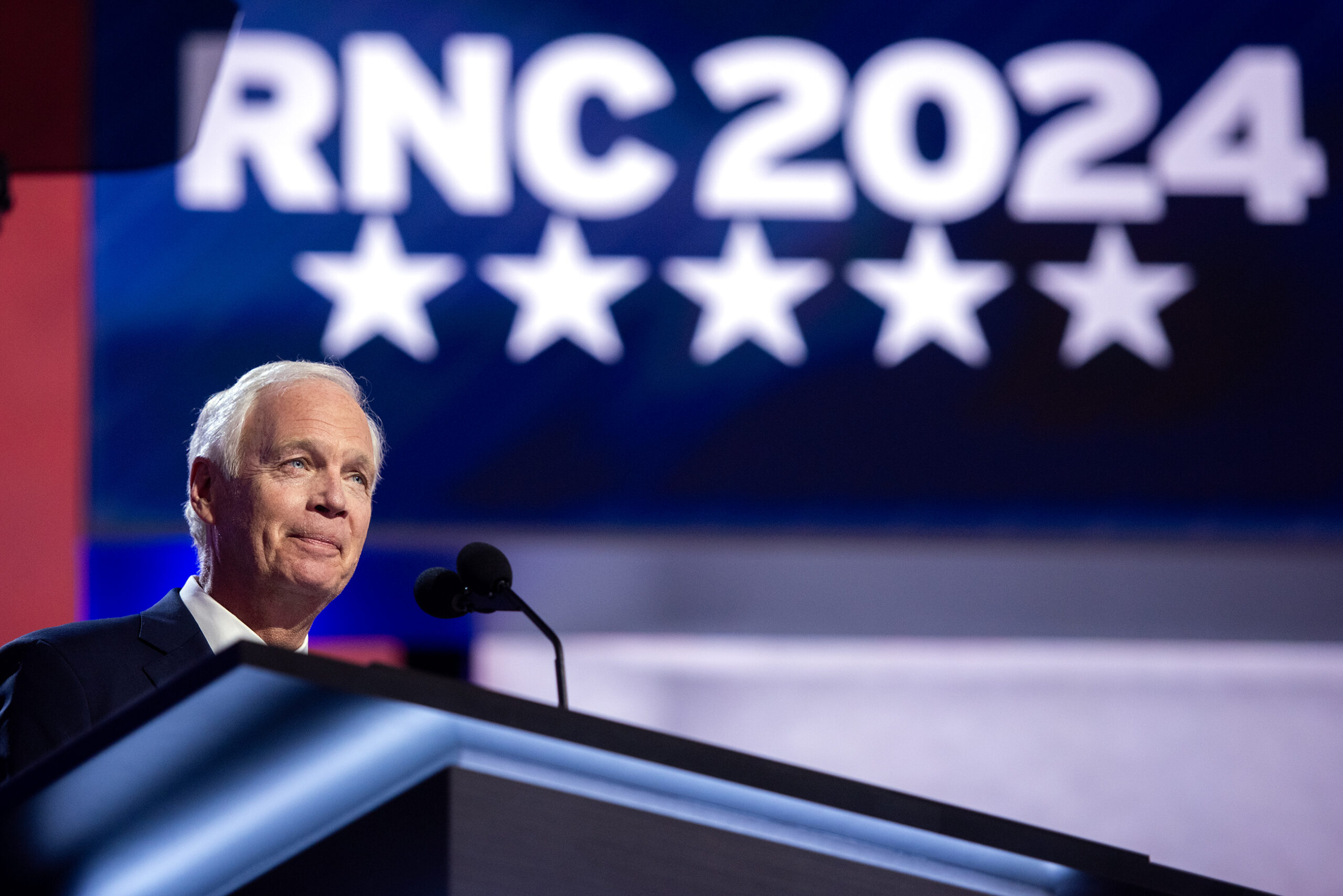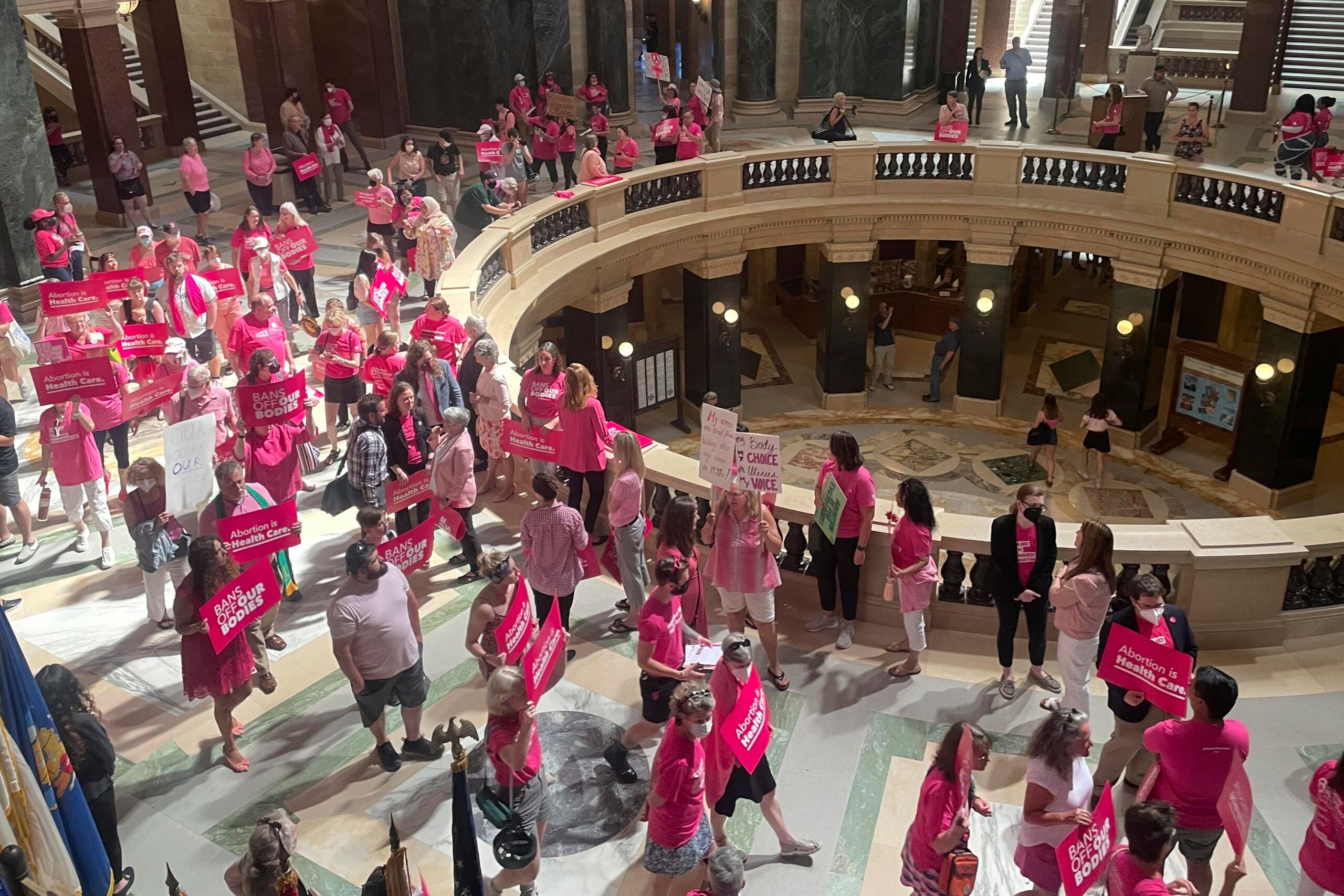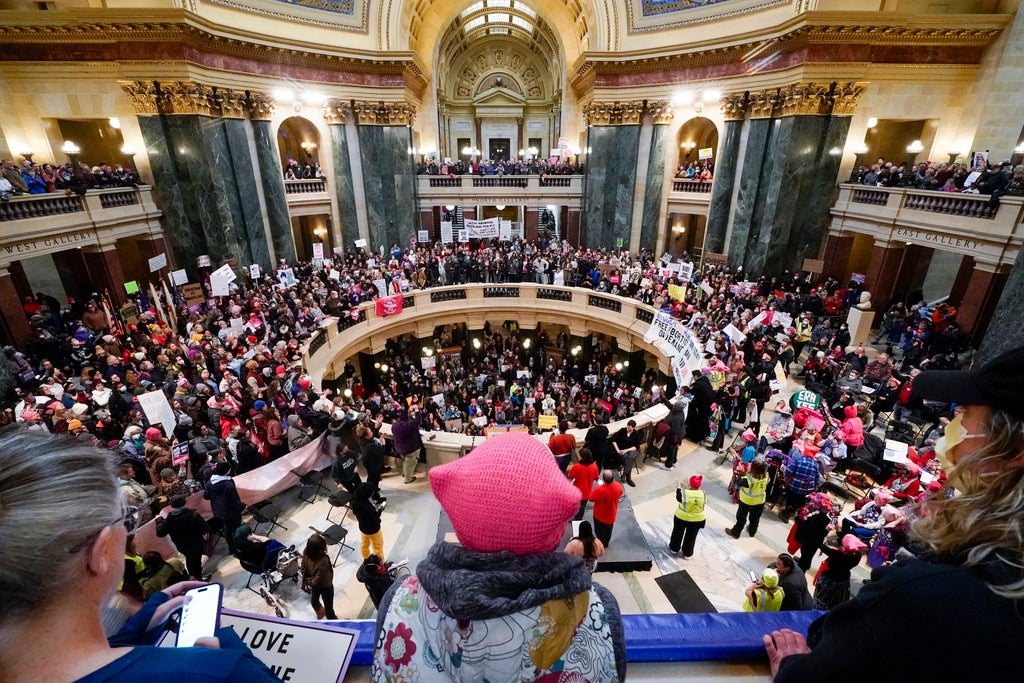On the same day the Republican-controlled Wisconsin Legislature declined to take up Gov. Tony Evers’ call to allow a referendum on abortion, U.S. Sen. Ron Johnson reiterated his call for voters to decide the legal and moral status of abortion.
Democrats blasted Johnson’s call for a referendum as disingenuous, but the move by the incumbent senator seeking a third term in November also shows a divide among Republicans on how to handle calls to change Wisconsin’s 1849 abortion ban. That law went into effect when the U.S. Supreme Court overturned Roe v. Wade in June.
Speaking Tuesday at a meeting of the Rotary Club of Milwaukee, Johnson said he favored what he called a “one-time, single-issue referendum to decide the question” of the moral status of abortion.
News with a little more humanity
WPR’s “Wisconsin Today” newsletter keeps you connected to the state you love without feeling overwhelmed. No paywall. No agenda. No corporate filter.
His Senate office later released to the Milwaukee Journal Sentinel a “sample ballot” for his proposal, which would ask voters, “At what point does society have the responsibility to protect the life of an unborn child?” Voters would have 10 options, beginning with “from the moment of conception” and ending “Never — an unborn child has no right to life.”
Johnson, a Republican from Oshkosh, first raised the possibility of a referendum on Wisconsin’s 1849 abortion ban last month, when he said he favored letting voters decide the question. But because Wisconsin does not permit binding legal referendums, doing so would require changing state law.
Evers directly referenced Johnson’s proposal when he announced last month that he would call a special session of the state Legislature for the purpose of creating a legal path for such a referendum to exist.
But Republicans gaveled in and gaveled out of that special session Tuesday, as they did for an earlier special session in June where Evers called on lawmakers to overturn the 19th-century ban. Johnson, too, was critical of the special session, which he called rushed and divisive.
A spokesperson for Assembly Speaker Robin Vos did not respond to a request for comment on Johnson’s sample ballot and his proposal for changing Wisconsin law to permit such a referendum.
It is unlikely that abortion rights supporters would find Johnson’s proposed ballot question sufficient to settle the question. Polling has shown that broad majorities among both Democrats and Republicans believe any abortion ban should include exceptions for cases of rape and incest. Wisconsin’s ban includes an exception only when the mother’s life is threatened. Johnson’s sample ballot does not address the question of whether state law should include any such exceptions.
Johnson’s Senate spokesperson did not respond to a request from Wisconsin Public Radio about whether Johnson sees rape and incest exceptions as a subject for a future referendum.
Johnson’s call is also at odds with his position throughout his time as a U.S. senator. In 2011, less than a month after he took office, he cosponsored the Life at Conception Act, which would have extended constitutional protection to embryos. He cosponsored similar bills in every session he’s been in Congress, and in May said he supported a national abortion ban after 20 weeks.
But at the Rotary Club event, he responded to a question of whether he supports a national abortion ban by saying he “(doesn’t) think 535 members of Congress should decide.”
His change in position comes as polling shows abortion rights is an issue that has energized Democratic voters ahead of the midterm elections. Both Evers, who is seeking reelection against Republican Tim Michels, and Johnson’s Democratic opponent Lt. Gov. Mandela Barnes, are making abortion rights the centerpiece of the last month of their campaigns.
In a statement, Barnes said “Ron Johnson can’t hide from his anti-choice record. … Voters will hold him accountable for his efforts to rip away the right of women to make choices about their own bodies this fall.”
The Wisconsin Democratic Party said Johnson’s calls for a referendum were “another step in trying to solidify Wisconsin’s 1849 statute.”
The Milwaukee Journal Sentinel reported that Johnson’s spokesperson said Democrats are seeking to “politicize” the issue and distract voters from inflation and rising crime rates.
An average of recent polling has shown Johnson with a narrow but expanding lead over Barnes, though several individual polls have found the race even or given Barnes a slight lead. The Senate race is one of the most expensive and heavily targeted in the nation, as Democrats nationally seek to hold or expand their control of the U.S. Senate.
Wisconsin Public Radio, © Copyright 2025, Board of Regents of the University of Wisconsin System and Wisconsin Educational Communications Board.

